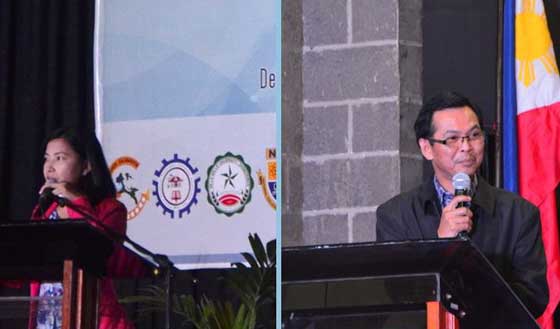BY THERESA JANE CAJARTE, SENIOR ECONOMIC DEVELOPMENT SPECIALIST
NATIONAL ECONOMIC AND DEVELOPMENT AUTHORITY
A multisectoral body comprised of academe, industry and government representatives has agreed to put forward a set of policy recommendations to tackle the job-skills mismatch in the country.
The Calabarzon Regional Development Council, through its Special Committee on Strengthening Academe and Industry Linkages (SCS A-IL), in partnership with the Cavite Technical Vocational Educators Association Inc., held a summit that discussed specific ways by which the issue of mismatch between jobs and the skills required could be resolved.
The First Calabarzon Academe-Industry Linkages Summit convened 296 participants from the academe, industry and government at the De La Salle University-Dasmariñas, in Cavite on October 25.
With the theme “Strengthening Academe-Industry Linkage towards Calabarzon’s Sustainable Development and Asean Economic Integration,” the summit culminated in the signing of a manifesto stating their policy recommendations for the short, medium and long term, and other potential issues related to the Asean economic integration.
The signing of the manifesto was led by SCS A-IL committee chairman Emerson B. Atanacio.
The summit also provided a venue to present the industry skills and human resource requirements, current academic offerings and government support, as well as experiences on academe-industry linkages.
In her keynote message, National Economic and Development Authority Deputy Director-General Adoracion Navarro emphasized the importance of closer and sustained academe-industry partnerships and enabling government framework to improve the country’s economic competitiveness and human capital amid changing development contexts such as the Asean integration.
Various resource persons presented the topics of utmost concern to the group, led by Executive Director Ma. Corazon Halili-Dichosa of the Department of Trade and Industry’s Board of Investments, Allan G. Revote of DTI, Executive Director Elmer K. Talavera of the Technical Education and Skills Development Authority (TESDA) and Robelyn C. Revilla of the Department of Labor’s Bureau of Local Employment.
They covered the following issues: Academe-Industry Partnership for Industry Development, Asean Economic Cooperation (AEC) Gameplan, Academe-Industry Partnerships in Technical Vocational Education and Training to maximize AEC gains and the Philippine Labor Market Information System and the Human Resource Development Roadmap Initiative.
Other industry experts and implementing agencies also served as resource persons in the five parallel breakout sessions, e.g. IT-BPM, electronics, automotive, agriculture and fisheries and tourism, which are the region’s priority industries or sectors.
The event was organized by the technical working group composed of government representatives from the Commission on Higher Education, Department of Education, DTI, DOLE, TESDA, NEDA, Department of Agriculture, Department of Tourism, representatives from DLSU-D, NCST, BatStateU, CvSU, LSPU, SLSU, URS, UPLB; and industry representatives from IT & Business Process Association of the Philippines, Semiconductor and Electronics Industries in the Philippines Foundation, Inc. and Motorcentral Sales. The NEDA Region IV-A served as summit secretariat.


